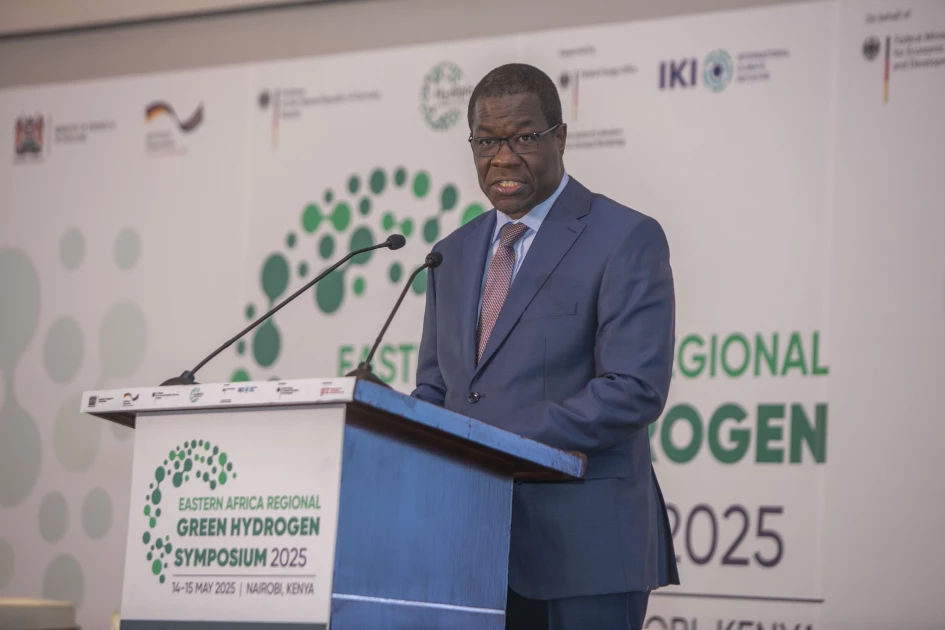Germany, Kenya in talks to tackle green hydrogen barriers with Ksh.17B investment boost

Kenya’s Cabinet Secretary for Energy and Petroleum, Opiyo Wandayi speaking during a two-day Eastern Africa Regional Green Hydrogen Symposium. PHOTO| COURTESY
The two countries launched a climate and development partnership in 2022, aimed at helping Kenya—East Africa’s largest economy—develop a green hydrogen value chain to locally produce fertilizer.
Through the partnership, Germany has committed over Ksh.17 billion in concessional financing and grants to cover the costs of a 100 MW green hydrogen plant to be implemented by KenGen. The fertilizer plant will be built by the private sector, thereby strengthening the Public-Private Partnership (PPP) business model.
Additionally, through its development bank KfW, Germany has set up a Development Fund with a volume of almost Ksh40 billion to support Power-to-Green Hydrogen markets in developing and emerging countries.
Mature industrial-scale green hydrogen projects from public and private sectors are eligible to apply for these grants. In Africa, eligible countries initially include Egypt, Kenya, Morocco, and South Africa, with expansion to other nations under consideration.
“It is our strong belief that green hydrogen development in Eastern Africa is about green industrial growth for jobs, local fertilizers for food security, and accelerated renewable energy development. This means driving economic development while also combating climate change,” said Sebastian Groth, Ambassador of the Federal Republic of Germany to Kenya.
“To unlock business cases and create new job opportunities, however, a conducive general business environment is also needed, including stable and predictable regulations. Together with our European partners, we are in dialogue with the Kenyan government to overcome these challenges,” he added.
Speaking during a two-day Eastern Africa Regional Green Hydrogen Symposium, Kenya’s Cabinet Secretary for Energy and Petroleum, Opiyo Wandayi, emphasized that for green hydrogen to succeed, it must be part of a broader vision for a resilient, industrial, and sustainable Africa.
“Kenya and Africa at large have the potential not only to meet our own energy needs but to become a global hub for clean energy exports, industrial decarbonization, and climate-smart development. Green hydrogen and its derivatives, such as green ammonia and methanol, offer us a pathway to unlock this potential,” said Wandayi.
“That is why this symposium is so important. For the first time, we are bringing together over 250 stakeholders from across Eastern Africa and beyond—governments, investors, research institutions, development agencies, and civil society—to chart a common vision for a green hydrogen ecosystem that is inclusive, equitable, and regionally integrated.”
The CS noted that Kenya is currently finalizing its National Energy Policy and is engaging with global technology leaders, multilateral financiers, and domestic innovators to build bankable projects that are environmentally sound and socially inclusive.
Want to send us a story? SMS to 25170 or WhatsApp 0743570000 or Submit on Citizen Digital or email wananchi@royalmedia.co.ke
Comments
No comments yet.



Leave a Comment